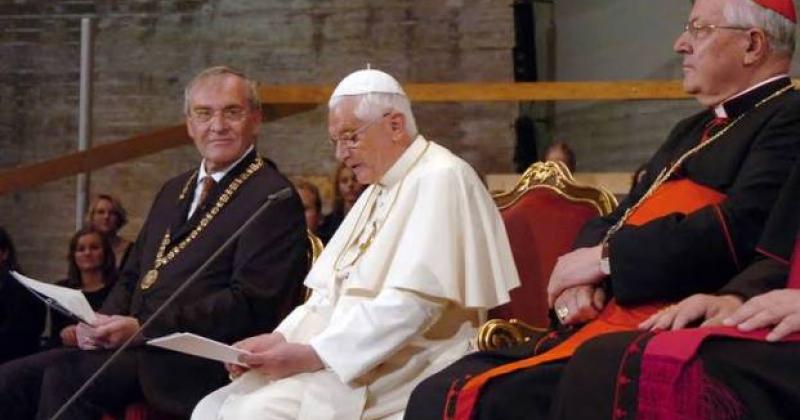In light of the horrific attack on Charlie Hebdo many are quoting Benedict XVI’s lecture against violence committed in the name of the faith. But they forget that the speech was a critique of modern reason - which dismisses religion as a subculture from within.
The terrifying attack in Paris, the massacre carried out at the offices of satirical French weekly, Charlie Hebdo, by three Islamic terrorists who had “trained” with jihadist militia in Syria, reminded many of the condemnations made by Italian journalist and writer Oriana Fallaci. It also brought to mind the famous speech Benedict XVI gave in Regensburg in September 2006 on a visit to his old university.
That Benedict XVI condemned the use of violence and fanaticism that makes wrongful use of God’s name in this and in other speeches he gave and as his predecessor had done before him, is without question. It is also known that in his Christmas address to the Roman Curia just a few months after the Regensburg speech, Benedict XVI said: “In a dialogue to be intensified with Islam, we must bear in mind the fact that the Muslim world today is finding itself faced with an urgent task. This task is very similar to the one that has been imposed upon Christians since the Enlightenment, and to which the Second Vatican Council, as the fruit of long and difficult research, found real solutions for the Catholic Church.”
It is also worth remembering, however, that the Regensburg speech was not about the violence of religious fanaticism, rather, it was a criticism of a certain way in which reason was understood in the West. In that famous speech, Ratzinger said: “This attempt, painted with broad strokes, at a critique of modern reason from within has nothing to do with putting the clock back to the time before the Enlightenment and rejecting the insights of the modern age. The positive aspects of modernity are to be acknowledged unreservedly: we are all grateful for the marvellous possibilities that it has opened up for mankind and for the progress in humanity that has been granted to us.”
“In the Western world,” he went on to say in his speech, “it is widely held that only positivistic reason and the forms of philosophy based on it are universally valid. Yet the world's profoundly religious cultures see this exclusion of the divine from the universality of reason as an attack on their most profound convictions. A reason which is deaf to the divine and which relegates religion into the realm of subcultures is incapable of entering into the dialogue of cultures.
As he looked back on the year that was about to pass in his traditional Christmas address to the Roman Curia in December 2006, Benedict XVI added that “in Regensburg the dialogue between the religions was only marginally touched on and in a twofold perspective. Secularized reason is unable to enter into a true dialogue with the religions. It remains closed to the question of God, and this will end by leading to the clash of cultures.”
Today, everyone simply sees it as a call to Islam. Instead, it was also a call to a West that tends to “relegate religion into the realm of subcultures”.
